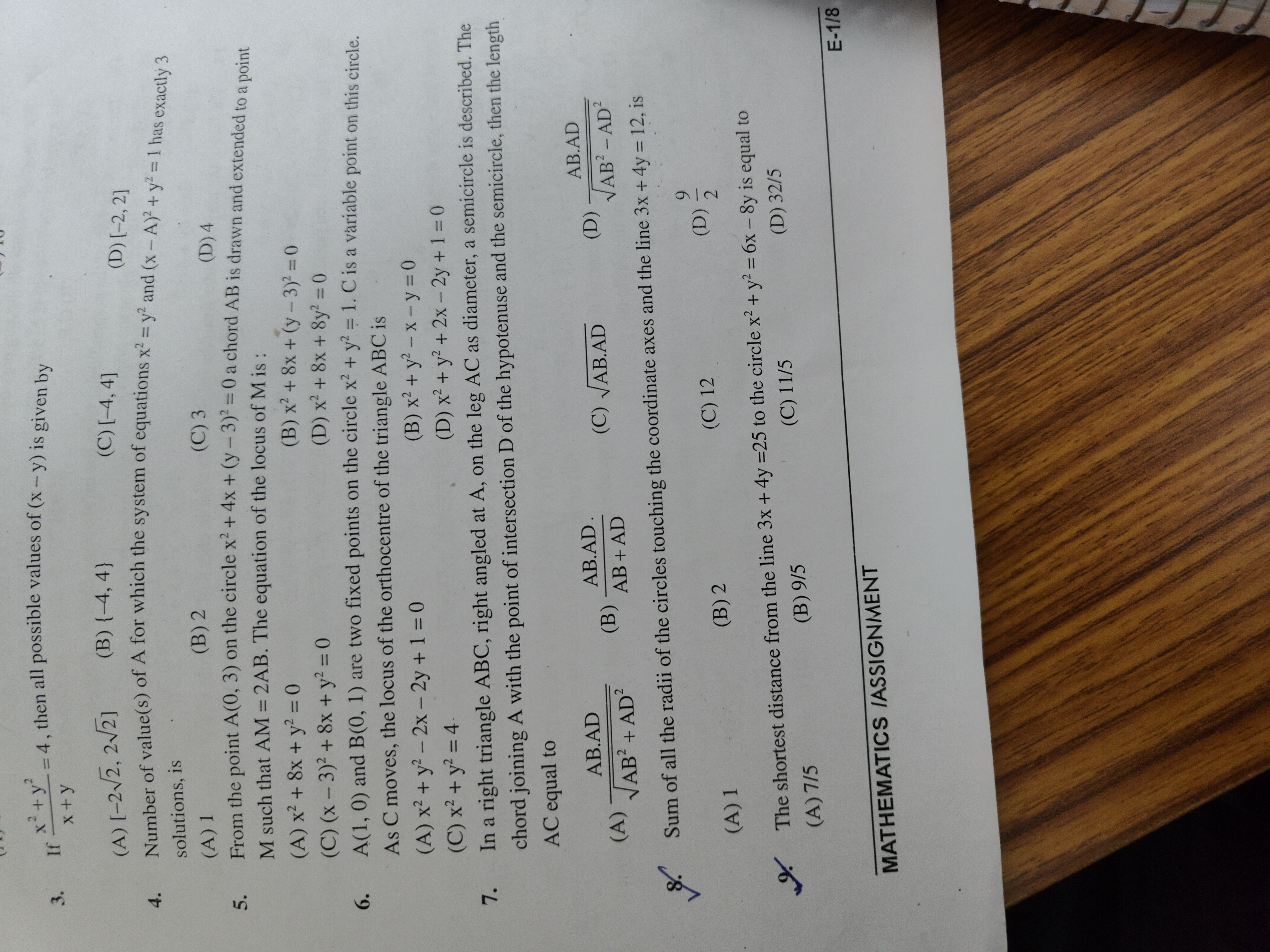Question
Question: If $\frac{x^2 + y^2}{x+y} = 4$, then all possible values of (x - y) is given by...
If x+yx2+y2=4, then all possible values of (x - y) is given by

[-22, 22]
{-4, 4}
[-4, 4]
[-2, 2]
[-4, 4]
Solution
Let the given equation be x+yx2+y2=4. This implies x2+y2=4(x+y), and we must have x+y=0. Let k=x−y. Then x=y+k. Substituting x in the equation: (y+k)2+y2=4((y+k)+y)⟹y2+2yk+k2+y2=4(2y+k)⟹2y2+2yk+k2=8y+4k. Rearranging into a quadratic equation in y: 2y2+(2k−8)y+(k2−4k)=0. For real solutions of y, the discriminant must be non-negative: D=(2k−8)2−4(2)(k2−4k)≥0⟹4(k−4)2−8(k2−4k)≥0⟹4(k2−8k+16)−8k2+32k≥0⟹4k2−32k+64−8k2+32k≥0⟹−4k2+64≥0⟹64≥4k2⟹16≥k2. This implies −4≤k≤4. We need to check if x+y=0 can occur for any k in this range. If x+y=0, then y=−x. Substituting x−y=k, we get x−(−x)=k⟹2x=k⟹x=k/2. Then y=−k/2. If x+y=0, then k/2+(−k/2)=0. The original equation is undefined if x+y=0. If y=−k/2 is a root of 2y2+(2k−8)y+(k2−4k)=0, then 2(−k/2)2+(2k−8)(−k/2)+(k2−4k)=0, which simplifies to k2/2=0, so k=0. When k=0, the quadratic for y is 2y2−8y=0⟹2y(y−4)=0, giving y=0 or y=4. If y=0, x=y+k=0. Point (0,0). x+y=0, so this solution is invalid. If y=4, x=y+k=4. Point (4,4). x+y=8=0. This solution is valid, and x−y=0. Thus, k=0 is a possible value for x−y. The possible values of x−y are in the interval [−4,4].
